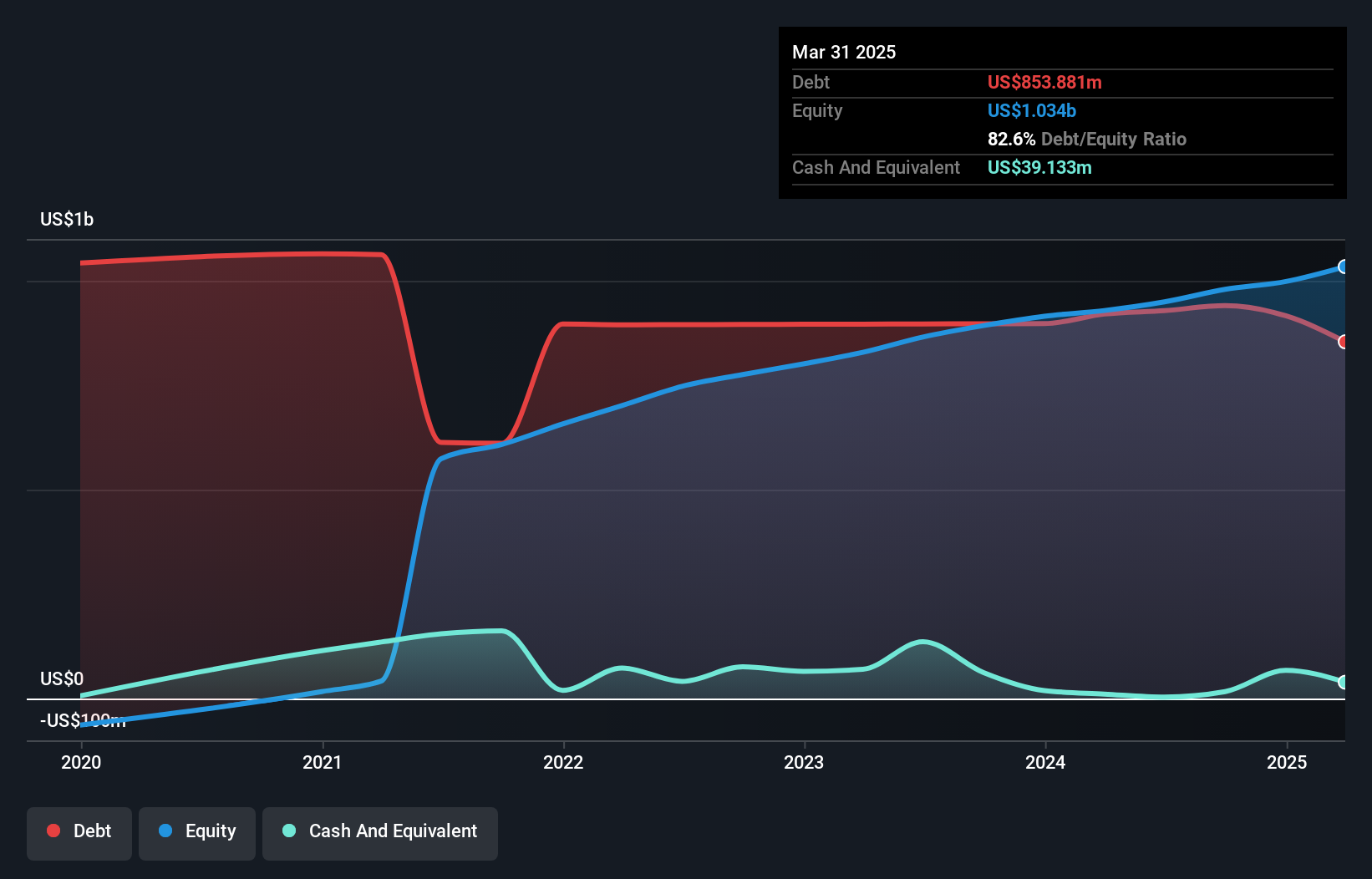Is Mister Car Wash (NASDAQ:MCW) A Risky Investment?
Legendary fund manager Li Lu (who Charlie Munger backed) once said, 'The biggest investment risk is not the volatility of prices, but whether you will suffer a permanent loss of capital.' It's only natural to consider a company's balance sheet when you examine how risky it is, since debt is often involved when a business collapses. We note that Mister Car Wash, Inc. (NASDAQ:MCW) does have debt on its balance sheet. But is this debt a concern to shareholders?
When Is Debt A Problem?
Debt assists a business until the business has trouble paying it off, either with new capital or with free cash flow. Ultimately, if the company can't fulfill its legal obligations to repay debt, shareholders could walk away with nothing. However, a more common (but still painful) scenario is that it has to raise new equity capital at a low price, thus permanently diluting shareholders. Having said that, the most common situation is where a company manages its debt reasonably well - and to its own advantage. When we examine debt levels, we first consider both cash and debt levels, together.
What Is Mister Car Wash's Debt?
As you can see below, Mister Car Wash had US$853.9m of debt at March 2025, down from US$920.3m a year prior. However, it does have US$39.1m in cash offsetting this, leading to net debt of about US$814.7m.

A Look At Mister Car Wash's Liabilities
According to the last reported balance sheet, Mister Car Wash had liabilities of US$193.6m due within 12 months, and liabilities of US$1.86b due beyond 12 months. On the other hand, it had cash of US$39.1m and US$11.8m worth of receivables due within a year. So it has liabilities totalling US$2.01b more than its cash and near-term receivables, combined.
This deficit is considerable relative to its market capitalization of US$2.10b, so it does suggest shareholders should keep an eye on Mister Car Wash's use of debt. This suggests shareholders would be heavily diluted if the company needed to shore up its balance sheet in a hurry.
Check out our latest analysis for Mister Car Wash
We measure a company's debt load relative to its earnings power by looking at its net debt divided by its earnings before interest, tax, depreciation, and amortization (EBITDA) and by calculating how easily its earnings before interest and tax (EBIT) cover its interest expense (interest cover). The advantage of this approach is that we take into account both the absolute quantum of debt (with net debt to EBITDA) and the actual interest expenses associated with that debt (with its interest cover ratio).
Mister Car Wash has a debt to EBITDA ratio of 2.8 and its EBIT covered its interest expense 2.7 times. This suggests that while the debt levels are significant, we'd stop short of calling them problematic. However, one redeeming factor is that Mister Car Wash grew its EBIT at 17% over the last 12 months, boosting its ability to handle its debt. The balance sheet is clearly the area to focus on when you are analysing debt. But it is future earnings, more than anything, that will determine Mister Car Wash's ability to maintain a healthy balance sheet going forward. So if you want to see what the professionals think, you might find this free report on analyst profit forecasts to be interesting.
But our final consideration is also important, because a company cannot pay debt with paper profits; it needs cold hard cash. So we clearly need to look at whether that EBIT is leading to corresponding free cash flow. Over the last three years, Mister Car Wash saw substantial negative free cash flow, in total. While that may be a result of expenditure for growth, it does make the debt far more risky.

Our View
Mulling over Mister Car Wash's attempt at converting EBIT to free cash flow, we're certainly not enthusiastic. But at least it's pretty decent at growing its EBIT; that's encouraging. Overall, we think it's fair to say that Mister Car Wash has enough debt that there are some real risks around the balance sheet. If everything goes well that may pay off but the downside of this debt is a greater risk of permanent losses. There's no doubt that we learn most about debt from the balance sheet. However, not all investment risk resides within the balance sheet - far from it. For instance, we've identified 1 warning sign for Mister Car Wash that you should be aware of.
Of course, if you're the type of investor who prefers buying stocks without the burden of debt, then don't hesitate to discover our exclusive list of net cash growth stocks, today.
Have feedback on this article? Concerned about the content? Get in touch with us directly. Alternatively, email editorial-team (at) simplywallst.com.
This article by Simply Wall St is general in nature. We provide commentary based on historical data and analyst forecasts only using an unbiased methodology and our articles are not intended to be financial advice. It does not constitute a recommendation to buy or sell any stock, and does not take account of your objectives, or your financial situation. We aim to bring you long-term focused analysis driven by fundamental data. Note that our analysis may not factor in the latest price-sensitive company announcements or qualitative material. Simply Wall St has no position in any stocks mentioned.
 Wall Street Journal
Wall Street Journal